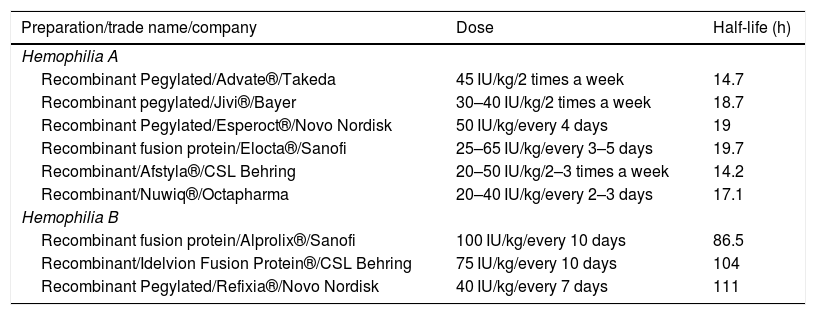Haemophilia A and B are congenital bleeding disorders characterized by missing or defective factor VIII or factor IX, respectively. Factor replacement therapy has been the gold standard for prophylaxis and treatment of bleeding complications. However, the inconvenience of regular intravenous administration, along with progression of arthropathy and development of inhibitors has driven the need for alternative treatment options, such as extended half-life products, non-factor coagulation products, such as subcutaneous emicizumab, blocking natural anticoagulants (rebalancing haemostatic agents) and gene therapy, which have been useful to control bleeding or are currently under late-phase clinical investigation.
La hemofilia A y B son trastornos hemorrágicos congénitos causados por deficiencia de los factores VIII y IX de la coagulación respectivamente. La terapia sustitutiva del factor deficitario ha sido clásicamente la base de la profilaxis y tratamiento de las complicaciones hemorrágicas, pero presenta varias limitaciones, como la administración frecuente por vía intravenosa, el desarrollo progresivo de artropatía y la presencia de inhibidores. Ello ha motivado la búsqueda de alternativas terapéuticas para un control más efectivo de la hemorragia y mayor facilidad de administración, tales como los factores de vida media extendida, fármacos procoagulantes, como emicizumab de administración subcutánea, bloqueo de las vías anticoagulantes naturales (hemostasia rebalanceada) y la terapia génica, con las que se ha conseguido un control efectivo de la hemorragia o se encuentran en fase avanzada de investigación clínica.










